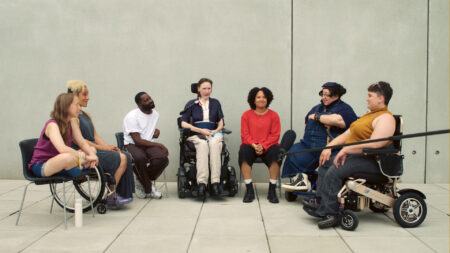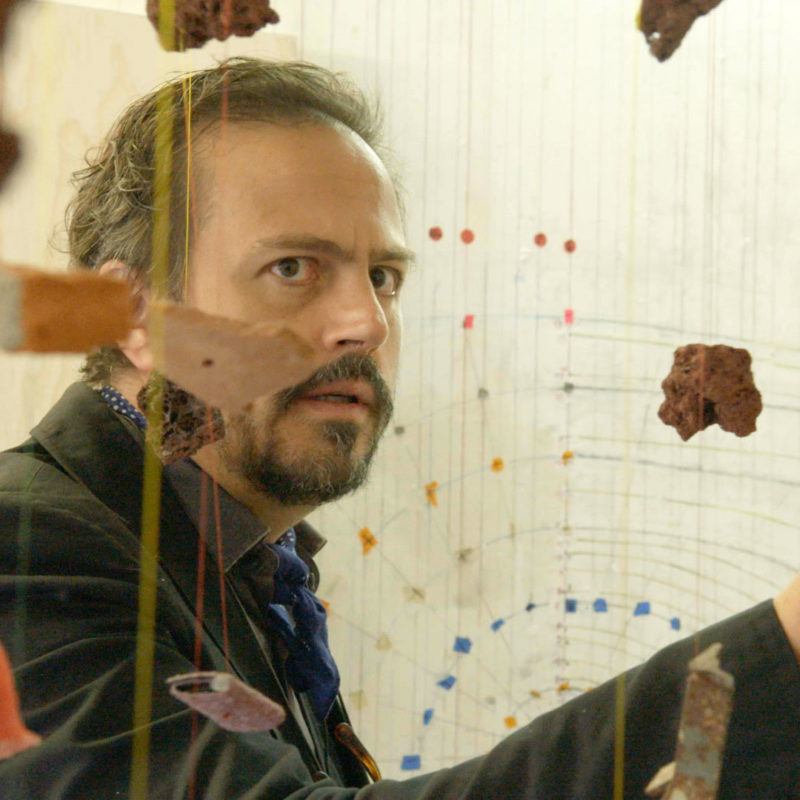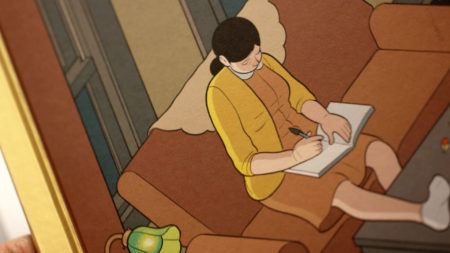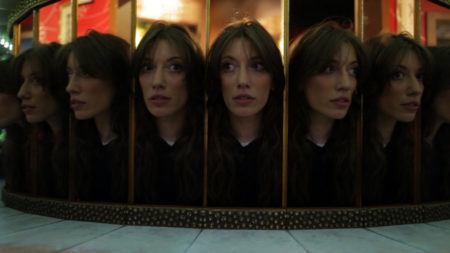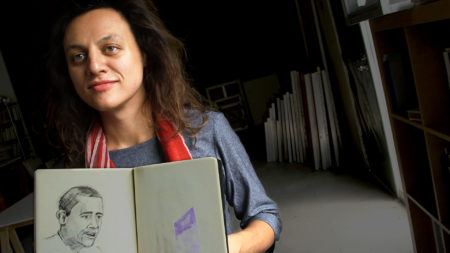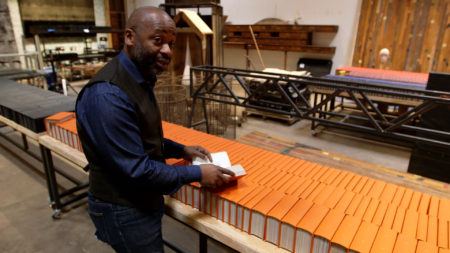Continue playing
(Time remaining: )
Play from beginning
Continue playing "{{ controller.videos[controller.getVideo(controller.currentVideo)].segmentParentTitle}}"
{{controller.videos[controller.getVideo(controller.currentVideo)].title}} has ended.
AliasDamián Ortega
From his Mexico City studio, Damián Ortega recounts his early career as a cartoonist and his struggles to find Spanish-language resources on contemporary art as a young artist. Given the 1979 interview Dialogues with Marcel Duchamp by his colleague and mentor, Gabriel Orozco, Ortega was challenged to grasp the content in English. Ortega asked an artist friend to translate the book into Spanish and the process morphed the text’s original content into something else profound. “It’s beautiful because at the end it’s Duchamp completely out of context,” says Ortega. “He becomes like a Mexican.”
From this experience, Ortega founded Alias, an independent book publisher that translates contemporary art texts into Spanish, distributing and publishing books otherwise unavailable in Spanish-speaking countries. “My generation didn’t have any of this information about contemporary art. It was a time when we didn’t have the internet, we didn’t have cell phones. We used to share information through photocopies, through books.” Ortega explains the process of translating, recontextualizing, and appropriating as an opportunity to reexamine knowledge and ways of thinking from different perspectives. “In the end, every country gives some special way of thinking.”
Credits
Producer: Ian Forster. Interview: Deborah Dickson. Editor: Morgan Riles. Camera: Hatuey Viveros. Sound: Kexolli Kwauhtlinxan. Artwork Courtesy: Damián Ortega, Alias Editorial, & Solomon R. Guggenheim Museum, New York. Special Thanks: Museo Jumex, Olga Rodríguez, & Marek Wolfryd.
Extended Play is presented by Alta Art. Additional support provided by public funds from the New York City Department of Cultural Affairs in partnership with the City Council; the Art21 Contemporary Council; and by individual contributors.
Closed captionsAvailable in English, German, Romanian, Italian, Japanese, Korean, Chinese, Italian
Through the Art21 Translation Project, multilingual audiences from around the globe can contribute translations, making Art21 films more accessible worldwide. Translate this video now.
Interested in showing this film in an exhibition or public screening? To license this video please visit Licensing & Reproduction.
Damián Ortega uses objects from his everyday life—Volkswagen Beetle cars, Day of the Dead posters, locally-sourced corn tortillas—to make spectacular sculptures which suggest stories of both mythic import and cosmological scale. In many of the artist’s sculptures, vernacular objects are presented in precise arrangements—often suspended from the ceiling or as part of mechanized systems—that become witty representations of diagrams, solar systems, words, buildings, and faces. These shifts in perception are not just visual but also cultural, as the artist draws out the social history of the objects featured in his sculptures, films, and performances.
“Appropriation is a statement because it gives the chance to recontextualize knowledge.”
Damián Ortega
Wrapped Up In Books
Chris Ware
Glenn Ligon
Tala Madani
Minerva Cuevas
Theaster Gates
